Independent Industry Figures is a weekly column at IMP where we interview music industry figures to try to better understand what they’re all about. With each installment we try and get a sense of what it means to make a living in the music industry and how people can get involved. After all – what can we do but work hard and try to help each other live the dream?
Bob Lugowe is one of those dudes who’s managed to rapidly rise into becoming one of the most influential figures in heavy metal. Despite having only graduated in 2008 from Northeastern University Lugowe already runs the Relapse marketing department with an impressive degree of success. Sure, we can credit the rise of metal in recent years to a part of Lugowe’s triumph, but his pioneering the use of social media in the metal world has made him crucial in the underground.
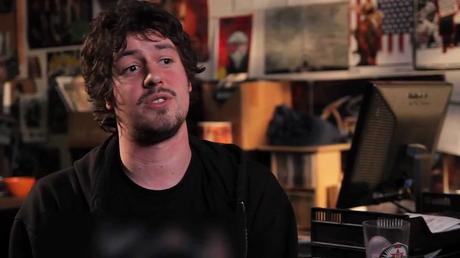
Beyond that, I’ve always admired Bob’s up-front friendliness as well as his straightforward honesty, both traits that seem to run strong in many significant industry figures. What I’ve come to understand in my personal conversations with Lugowe is that he truly does want the best for everybody and is always willing to give advice and guidance to those who ask. In other words – one of the things that makes him so prominent is the same thing that guides so many other underground figures, a relentless dedication to helping make the scene better for everybody involved.
At the end of the day, it’s hard to deny that Relapse has only grown in recent years and it seems to me at least that a large part of this is due to Lugowe’s hard work behind the scenes. Beyond that – his personal label, Brutal Panda seems to only be expanding, having recently put out records by such killer acts like Mantar and The Atlas Moth. It’s kind of surreal to speak to someone so dedicated to this music that they can describe one of the coolest bedroom labels in metal as “A hobby”.
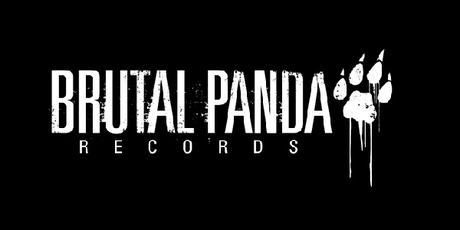
Yet here’s the thing – Bob Lugowe remains humble and down to earth, like I said, he’s always willing to help out someone with a question and his active role in things like Metal Injections On The Record series prove that he really seeks to help make the industry an easier to understand place for everybody. Truly a titan of the scene, our interview sees him dissecting the role of record labels, the changing market for metal, and much more.
So Bob, to start, what exactly is your position at Relapse?
I’m the director of marketing, publicity and promotions.
Could you outline the path to get there?
I started as an intern when I was in college, I went to the music industry program at Northeastern. I did a six month internship, unpaid of course, for Relapse. I happened to be at the right place at the right time because social media was really starting to take off. Twitter had just launched, Facebook had been around but was only just launching band pages and Myspace was still the king of the internet. But we knew things were changing. When I came in they knew it was something exciting but labels and artists didn’t really know what to do with it. Myspace dominated things.
I kind of spearheaded making Facebook pages for artists, making a twitter account for the label and just generally staying on top of social media. That ended up being really important to do as you can see by how important it is for artists now. Since I was there for six months I really got to learn the ins and outs of working at a record label. When I finished my internship they took me on part time while I was still at school. Once I graduated I wanted to work there since Relapse was my favorite label as a kid.
I grew up outside of Philadelphia and would constantly shop at the Relapse Retail store which unfortunately no longer exists. It was this really great hole in the wall with the gnarliest death and grind albums you could find. I subscribed to the catalog and got to see Mastodon play in front of 30 people or Avenged Sevenfold open for them in front of like 25 people. It was awesome to see what they were doing for the scene not just on a local level but also a national level. They were doing a lot of cool stuff with bands like Pig Destroyer and Cephalic Carnage and all of those early 2000’s Relapse bands. To intern there was a dream opportunity. Like I said I was definitely in the right place at the right time. I obviously worked hard, and I got hired right after I graduated. Now I run the entire promotions department there.
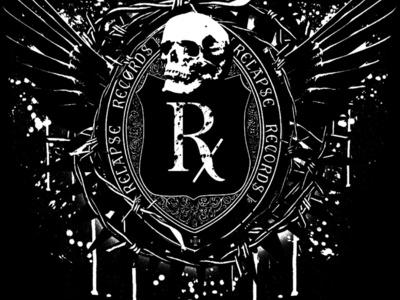
Can you tell us about Brutal Panda?
Brutal Panda I started when I was an intern at Relapse in 2008 I believe. That’s when I got even more involved and I wanted to do something on my own.. There was a band, Fight Amp, from Philadelphia that one of our co-workers, our production manager, was putting out on CD. Vinyl wasn’t really taking off yet, it was only slowly starting to rebuild some interest. We hadn’t gone through the vinyl boom that we saw in 2010-2011. My business partner and I asked if we could license the record to put it out on vinyl and our co-worker said “Of course” and we did it and had a lot of fun with it.
It was a lot of work though. We had to put all the records together ourselves. The jackets were messed up and we had to iron them so the glue would stick.. It was a labor of love and it sold out. So we decided to keep doing it. Through our connections at Relapse we were able to get contacts with a lot of other bands that we wanted to work with. We put out a split with Fight Amp and Black Tusk before Black Tusk was on Relapse and it’s actually how they got in touch with Relapse and John Baizley from Baroness did the artwork for it. That was a cool experience for us.
It’s always been more of a hobby than a full time job and we only put out two or three records a year, I obviously have a lot going on with Relapse. We’ve expanded to do digital as well, not just vinyl and stuff. It’s something I have complete control over. At Relapse it’s a team, there’s like five people who have to approve things, whereas Brutal Panda is just me and my partner so it’s cool. It’s a different setting too. We do noise rock and stuff. We’ve expanded though, we’ve put out stuff like the new Mantar record. It’s fun to have stuff that is pretty much entirely my own.
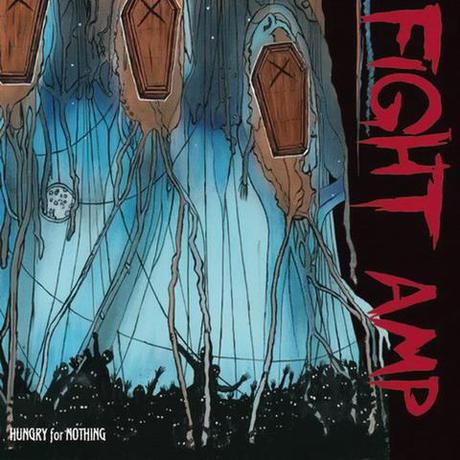
What I wanted to ask, came from watching Metal Injections, On The Record series. You said you think record labels are important right? But why?
That’s a multipart question and that really depends on the genre and the scope of what your band is trying to do. If you’re looking at a massive band like Metallica or even Faith No More or whoever, any large artist, they don’t need a label per say because they have buying power and have been established for years. Radiohead can self release a record on their own and hire a publicist and work with a small team. That’s not really the reality with smaller bands or bands that are just starting off.
With metal, punk and hardcore there is a really loyal and dedicated fanbase. With the labels that have been putting out records for 20-25 years, labels like Relapse, Nuclear Blast and Century Media they have become curators. It’s like a seal of approval. It raises them above one of the 5,000 other metal bands out there these days. There’s so many bands out there it’s overwhelming, even as a fan. You can’t possibly listen to everything that comes out in a year, so how else do you rise above the noise that’s out there?
How does Relapse choose?
It really depends, I don’t think there’s one specific formula we’re going after. We like to be a forward thinking label. That’s been very important since it started. We’ll not just sign grindcore and death metal bands. There were Relapse sublabels for noise and stuff for a while. We’ve obviously signed rock bands like Red Fang and Baroness and we’ve signed indie bands recently like Nothing who are considered a heavy shoegaze band. We’ve had electronic music like Zombi and we put out a Karl Sanders solo record that was in the world music category. For us we like things that are dark and heavy but that doesn’t mean that it has to fit in the exact definition of metal.
We also like leaders of the genre too. We like to find bands that are not just clones of whoever the bigger bands in the genre are. We’ve got the whole postmetal thing now and that started with Neurosis whereas modern progressive metal bands kind of descends from Mastodon. Necrophagist, Dillinger Escape Plan and Pig Destroyer are all great examples of this. Those bands are literally some of the best in their genre and there’s a million clones of those out there now.
We definitely scrutinize every artist. I can tell you we don’t just say “Oh this band will sell a lot of records let’s put it out” Everyone is super passionate about their jobs and the artists we put out. We make sure that we love them first and foremost.
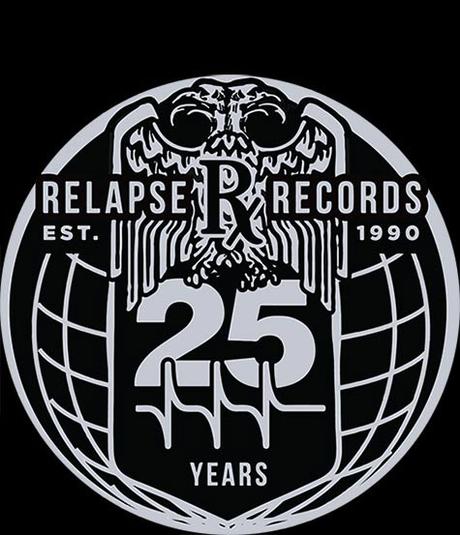
One thing I wanted to ask is – do you think that we’re witnessing a mainstreaming of metal with Red Fang being on the Letterman show and stuff? If so, why do you think that is?
It’s happening to some extent but it also really isn’t. There’s more mainstream metal bands playing Mayhem Festival or the Warped Tour type bands who get the younger crowd. Those guys are selling way more records than our artists. I do think that people like aggressive music more than they have in recent years. You’re seeing a lot of young kids getting into it because screams, tattoos and alternative looks are getting more popular. I think that’s just because the older generation was into that stuff and people were into them. Now younger people are coming up with their own version of it. When I was a kid we thought that dudes with long hair and tattoos were awesome and now you have even more kids who think that. It compounded on itself.
It is awesome that bands like Red Fang have been on Letterman and VH1 but I think that the mainstream press is more interested now too. I think that things like Spotify have made peoples tastes more eclectic since now you can listen to whatever you want at the click of a button. It’s much easier to discover music online these days. You can kind of go down a rabbit hole of suggested artists and playlists. I think it was Last FM who really pioneered that. The ability to discover music now is unprecedented. The fact that you see publications like Rolling Stone and Vice, publications from outside the metal world, paying close attention to it has definitely had an impact on peoples perception and their willingness to listen to heavier and more extreme music. For example black metal has been pretty popular in the last few years, who would have thought that would happen.

That still bothers me!
(Laughter) I don’t think it should. At the end of the day I don’t think art is limited to certain people. It should be available for everyone. You’ve got people who may be into it for the wrong reasons but I don’t think you can prevent people from listening to music.
So in the past 5-10 years do you feel that the situation for metal in the music industry has improved?
That’s a hard question answer because obviously record sales are still down however we’ve also had a lot of bands put out their best selling records to date, bands like Dying Fetus and Pig Destroyer. Bands that have been around for longer tend to get higher guarantees and can become legacy bands as well. I think the fact that we’ve been around for so long is a testament that it’s doing well, but no one is getting major label rich off of this. There is kind of a ceiling to what extreme music can sell.
At the same time we’ve seen some watershed moments with bands like Pallbearer and Baroness, or even Deafheaven who have started to breach the mainstream. That’s exciting and I think that people are more open minded to more genres of music.

Last question – do you think that this open mindedness is going to make being a niche artist more sustainable?
I think it depends on a lot of factors really. It depends on how a band and their manager handles their own career. You can get really popular super fast but if you’re not managing your money or strategically touring and signing deals you can crash and burn. You also see so many bands in our scene who are absolute staples like Neurosis and Mastodon who are able to just have their career doing music. Dying Fetus is a good example too. They tour all over the world and crush it on merch sales. You can be a band who sell 10,000 records and make a career out of it. If you want to be super rich though you should still be like… an engineer or something…
Go grow up you mean?
Yeah! (Laughter) Bands can definitely sustain themselves. That’s a pretty awesome thing for a band to be underground but still be able to tour the world and have die hard fans all over the world and be an institution for 20-25 years. I look forward to the days when we’re in old folks homes and listening to Decapitated and Morbid Angel. People aren’t going to stop listening to this music as they get older. You see things like a reinvigorated interest in bands like Death. We’re reaching out to a whole new generation of people who didn’t know about the band, one of the greatest metal bands of all time, and we’re able to push that on a new audience. We do a lot of reissue campaigns, like when we re-issued those Razor records. It gives people who weren’t there the first time around the chance to check it out. I think you’ll see a lot of bands who are still current re-issuing their older catalogues. You’ll see more bands touring on just one classic album. That’s a new opportunity playing on the nostalgia market.
As featured on Indie-music.com, Examiner.com, I Am Entertainment Magazine, Antimusic.com, and recommended by countless music publications, “Your Band Is A Virus! Expanded Edition” is the ultimate music marketing guide for serious independent musicians and bands. Get your copy now.

